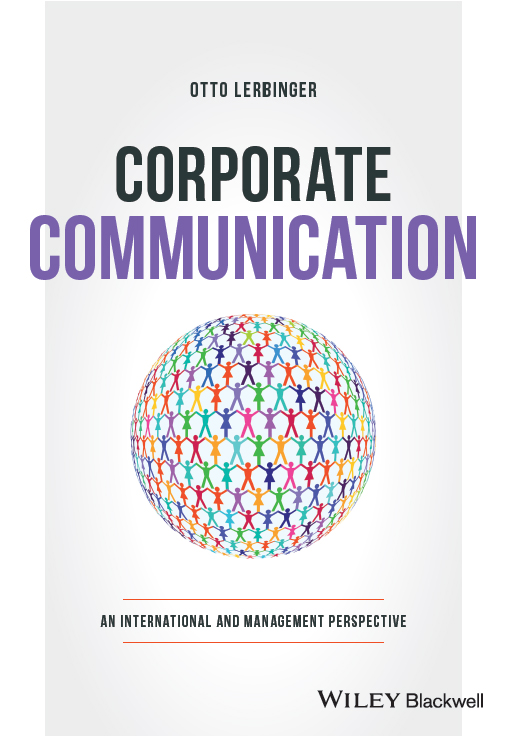Otto Lerbinger - Corporate Communication: An International and Management Perspective
Here you can read online Otto Lerbinger - Corporate Communication: An International and Management Perspective full text of the book (entire story) in english for free. Download pdf and epub, get meaning, cover and reviews about this ebook. City: Hoboken, year: 2018, publisher: Wiley-Blackwell, genre: Business. Description of the work, (preface) as well as reviews are available. Best literature library LitArk.com created for fans of good reading and offers a wide selection of genres:
Romance novel
Science fiction
Adventure
Detective
Science
History
Home and family
Prose
Art
Politics
Computer
Non-fiction
Religion
Business
Children
Humor
Choose a favorite category and find really read worthwhile books. Enjoy immersion in the world of imagination, feel the emotions of the characters or learn something new for yourself, make an fascinating discovery.

- Book:Corporate Communication: An International and Management Perspective
- Author:
- Publisher:Wiley-Blackwell
- Genre:
- Year:2018
- City:Hoboken
- Rating:5 / 5
- Favourites:Add to favourites
- Your mark:
Corporate Communication: An International and Management Perspective: summary, description and annotation
We offer to read an annotation, description, summary or preface (depends on what the author of the book "Corporate Communication: An International and Management Perspective" wrote himself). If you haven't found the necessary information about the book — write in the comments, we will try to find it.
Provides an international and management perspective on the field of corporate communication
Corporate communication plays an important role in higher-level management to help build and preserve a companys reputation. This intangible yet valuable asset determines the net worth of a company and affects the success of its operations. Corporate Communication: An International and Management Perspective introduces readers to the broad environment of the modern extended organization and provides an understanding of the globalization process. It describes how economic, political, and cultural features of a country affect company decisions and communication and discusses various communication disciplines and practices that are employed in programs and campaigns. This book addresses the key management issues of sustainability and technology and innovation. It also emphasizes the importance of why corporate communication must be seen as a management function and not restricted to a communication process.
Presented in five parts, Corporate Communication offers comprehensive chapters covering: The Domain of Corporate Communication; Strategic Application of Communication Practices; International Perspective; Key Management Issues of Sustainability and Technology; and Corporate Communication Contribution to Management. The foundation of Corporate Communication is public relations but also included is the entire range of communication practices and the contribution to management decision making.
- Conceptualizes corporate communication as a strategic management function which helps management recognize, adjust to, and construct policy related to global issues
- Emphasizes the critical role that corporate communication plays in making corporate decisions and behaviors more socially responsible and sustainable
- Demonstrates how corporate communication draws on public affairs, marketing and social media in its strategic planning
- Emphasizes the critical importance of relationships to corporations and their effect on reputation
- Provides numerous examples of cases of global problems and how corporations have responded to them
Corporate Communication is intended for upper-level undergraduate and graduate students in schools of communication and schools of business and management who want to extend their competence to the global arena and to combine the various communication practices to design strategic programs and campaigns. Course titles include corporate communication, international public relations, corporate public affairs, global marketing communication, global corporate communication, and social media.
Otto Lerbinger: author's other books
Who wrote Corporate Communication: An International and Management Perspective? Find out the surname, the name of the author of the book and a list of all author's works by series.






